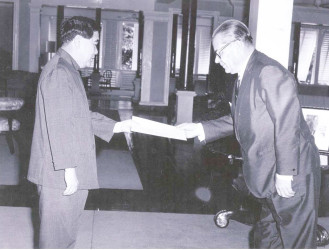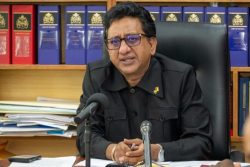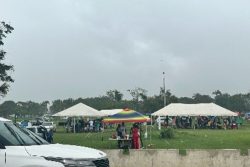On December 17, 1970, Guyana and what was known then as the Union of Soviet Socialist Republics, established diplomatic relations making it the first such for a Commonwealth Caribbean country.
Guyana’s Foreign Minister, Carl Greenidge and his Russian counterpart Sergey Lavrov recently exchanged congratulatory correspondence in celebration of the occasion.
Greenidge in a December 16 letter to Lavrov said that the relationship has been nurtured at every level and has allowed for the strengthening of cooperation in the economic, social and cultural fields.

“… the decade preceding the establishment of relations between Guyana and the Union of Soviet Socialist Republics was one of turbulence juxtaposed by the fragile hopes of newly independent states fighting for their right to self-determination. Following its independence on May 26, 1966, Guyana actively sought the friendship of those who understood the challenges faced by fledgling states in a world order that had been polarized by differing ideologies and geostrategic divisions”, Greenidge wrote.
Throughout the years, he noted that trade relations permitted the investment of such companies as RUSAL; Guyanese received scholarships in the field of education and specialised training in the security sector; and both countries cooperated in areas such as health, fisheries and culture.
The Foreign Minister also said that great strides have been made in removing barriers to closer ties through steps such as the abolition of visas between the two countries.
Greenidge expressed his gratitude to the Russians on his country’s behalf and further expressed hope for continued support from “friends in the international community” to achieve goals set out in the United Nations 2030 Sustainable Development Agenda and the preservation of international peace and security.
Lavrov in reply to Greenidge “I am confident that by joint efforts we will be able to unleash fully the significant potential of bilateral ties, enhance political dialogue, stren-gthen cooperation in the sphere of trade and investment as well as in the area of cultural, humanitarian and educational exchanges”.









